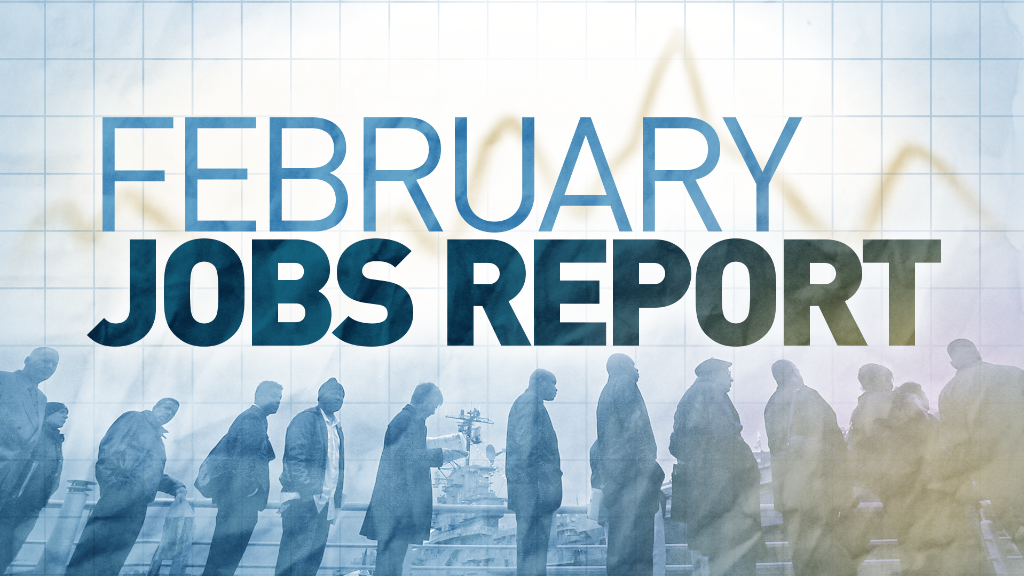
It was only a month ago that investors were like a poor teenager in a Hollywood slasher flick -- hiding in a closet, silently weeping and praying that the serial killer in the house wouldn't find them.
Intense fear was driving the market. It was almost primal.
But not any more! The only fear in the market now is FOMO ... a fear of missing out on the rebound.
The Dow and S&P 500 are both up 9% from the lows of the year they hit in early February. And both indexes on Friday climbed over psychologically important levels they haven't traded above since early January: 17,000 for the Dow and 2,000 for the S&P 500.
It's amazing how quickly the mood on Wall Street has changed.
CNNMoney's Fear & Greed Index, which measures seven gauges of investor sentiment, hit Greed territory earlier this week for the first time since December 1.
And the index is only a few points away from moving into Extreme Greed mode. We haven't seen that in more than a year.
So why have investors suddenly decided to turn their frowns upside down?
Simply put, cooler heads have prevailed.
Related: Is the oil crash over?
We're seeing that firsthand with oil -- which has been the engine driving the broader stock market caboose all year.
A month ago, many experts were rushing to put as low a target as they could on oil. Commodities analysts were acting like contestants on The Price Is Right trying to come up with the lowest bid possible in order to win. ($20! $15! $10!)
But oil stopped its slide at around $26. It has since stabilized around $35.
Even though there are still concerns about a major supply glut, there is hope that some nations will freeze (if not outright cut) production. There are fewer worries about demand for oil collapsing.
"Oil is still fairly volatile but it's holding its own in a fairly tight range lately," said Chris Gaffney, president of EverBank World Markets. "That has given investors a reason to be more positive."
So all that market madness from January and early February may just be a sign of sluggish global growth -- and not 2008 2.0.
"The market was deeply oversold earlier this year. When that happens, all you need is any sense of calm," said Quincy Krosby, a market strategist with Prudential Financial.
"We got that with economic data from China and the U.S. That has assuaged fears that a global recession is imminent," she added.
Related: U.S. job market still healthy -- 242,00 jobs added
The latest U.S. jobs report helps confirm that view. But the jobs report was not strong enough to raise fears of another interest rate hike by the Federal Reserve just yet.
A slowdown in wage growth is a sign that inflation is still not something the Fed has to worry about.
"The jobs report should be very comforting for investors," Gaffney said.
Corporate America is also not doing as poorly as feared. Nearly 70% of the companies in the S&P 500 reported earnings for the fourth quarter that topped estimates, according to FactSet Research.
Mariann Montagne, a portfolio manager with Gradient Investments, said that is helping to boost market confidence as well.
She added that decent earnings guidance -- particularly from technology companies -- is a big plus. And the dollar, while still strong, does not appear to be hurting the outlooks of big multinationals as much as did last year.
"The volatility has dissipated in the past few weeks thanks to earnings," Montagne said. "Better results are making people more willing to take on risk."
Still, it's important to note that earnings -- while ahead of expectations -- did fall in the fourth quarter. That's the third time in a row that's happened. And that's making Krosby a little nervous.
She said that the first quarter earnings reports are going to be a big test for the market. We need to see profits growing again.
Related: Who's worried about China now?
If they don't, there's the possibility that more companies will start handing out pink slips -- just like in the oil sector.
"How long can earnings decline before companies outside of energy start cutting costs?" Krosby wondered.
And just as the market's mood went from Extreme Fear to Greed in just a few weeks, it could easily turn negative again.
"The market is now getting close to overbought. Sentiment could swing back the other way as investors question if valuations are justifiable," Krosby said.
In other words, hang on to your hats.
The market will probably be choppy for the rest of the year -- especially as we draw closer to what's certain to be a contentious presidential election.


